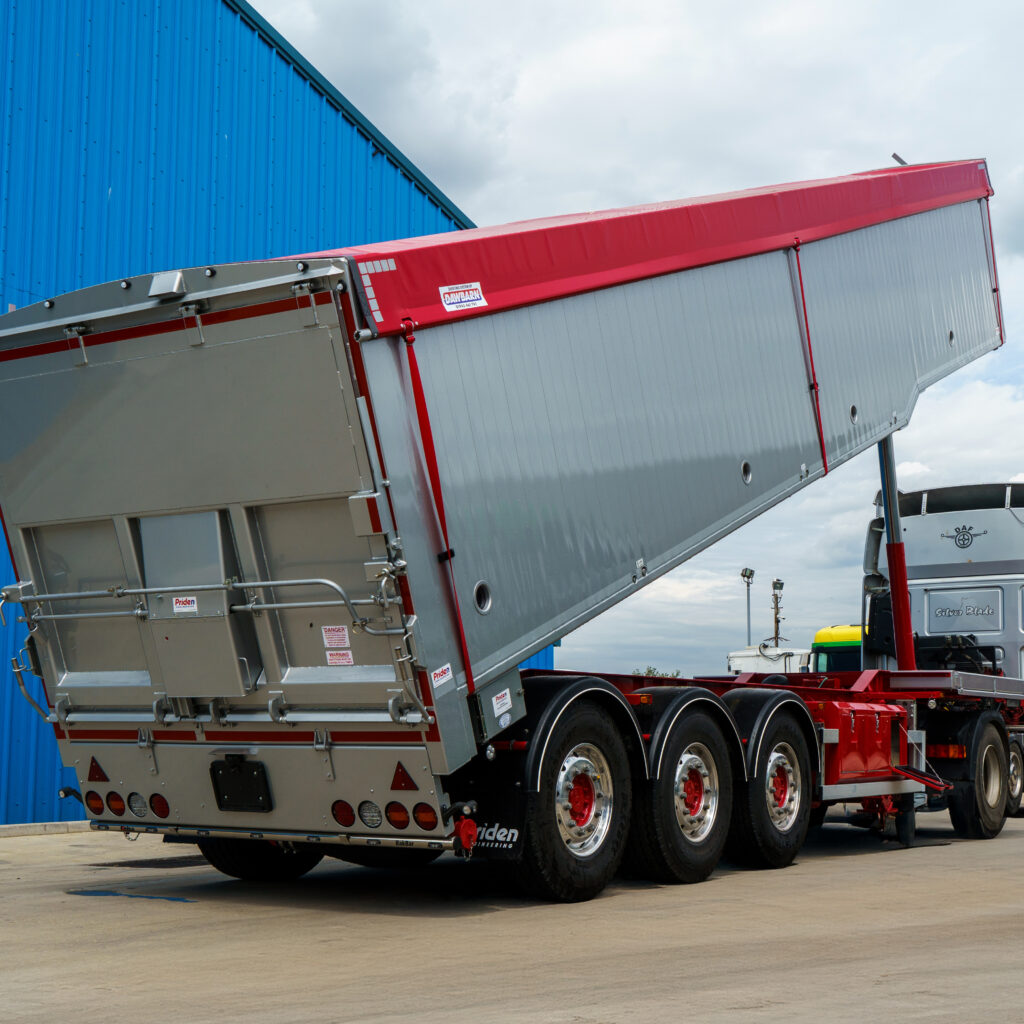
Faster unloads, quieter yards: how PRIDEN’s blower systems boost daily throughput
In bulk operations, performance isn’t a headline figure—it’s the sum of small, repeatable gains at every delivery. The fastest fleets don’t rush; they remove friction. This post looks at how PRIDEN’s duty-matched blower systems help fleets unload faster, work more safely and keep people and neighbours on side.
Start with the duty, not the catalogue
Two fleets can carry the same product and still need different systems. Site back-pressure, hose length, preferred discharge rate, ambient temperature and hygiene rules all shape the specification. We begin every project with a duty review—product characteristics, sites served, target times, noise constraints—so the blower, vessel and pipework are sized and routed for your real world requirements.
Engineering the flow
High throughput comes from low resistance. We optimise diameter selection, reduce sharp bends and minimise unions so energy goes into moving product, not fighting turbulence. On multi-compartment bodies, we balance pipe runs to avoid starved sections and make hose handling logical and safe. The result is smoother flow, less heat build-up and lower wear on seals and valves.
Make control simple—and safe
Operators work faster when controls are clear. PRIDEN systems use unambiguous sequencing with interlocks that prevent unsafe states, E-stops within reach, and visible indicators and gauges that give immediate feedback. Optional remote pendants let drivers maintain line-of-sight at the discharge point while staying clear of moving parts, reducing fatigue and error.
Noise reduction with no performance penalty
Neighbours, depot managers and drivers all notice noise. We integrate attenuation at source—blower selection, filtration and silencers—then protect the gains with smart routing and isolation. A quieter system doesn’t just keep the peace; it reduces operator stress and unlocks early-morning or late-evening windows at sensitive sites.
Documentation that stands up to scrutiny
From commissioning sheets to pressure and temperature logs, we provide an audit trail that helps fleets evidence safe operation and planned maintenance. For food-grade or pharma work, that documentation supports site audits and contract renewals.
A practical example (illustrative)
Consider a regional feed fleet running rigid bulk blowers on mixed urban/rural routes. Drivers report variable unload times, frequent hose changes and occasional site complaints about noise. After a duty review, PRIDEN rationalises pipework, increases bend radii, integrates clearer controls and adds attenuation. The result: more consistent discharge, reduced hose handling, calmer sound levels and less driver fatigue. Over a busy week, those saved minutes translate into steadier route adherence and fewer late-day scrambles.
Why it pays to standardise
Standardising on a duty-matched PRIDEN spec across vehicles simplifies training, reduces spares variety and gives maintenance teams predictable inspection points. It also makes it easier to share best practice between depots—everyone operates the same layout, with the same labels and the same safe sequence.
People, not just product
The best systems help people perform. Fall-protection (catwalks, handrails, anti-slip), lighting and cameras reduce unnecessary risks. Clear hose stowage and labelled couplings save seconds and prevent errors. All of it adds up: drivers feel supported, sites see professional behaviour, and management gets fewer incident reports.
If you’re chasing faster unloads without compromising safety or neighbour relations, speak to PRIDEN. We’ll review your duty, propose a matched system and provide commissioning and documentation to keep you compliant from day one.